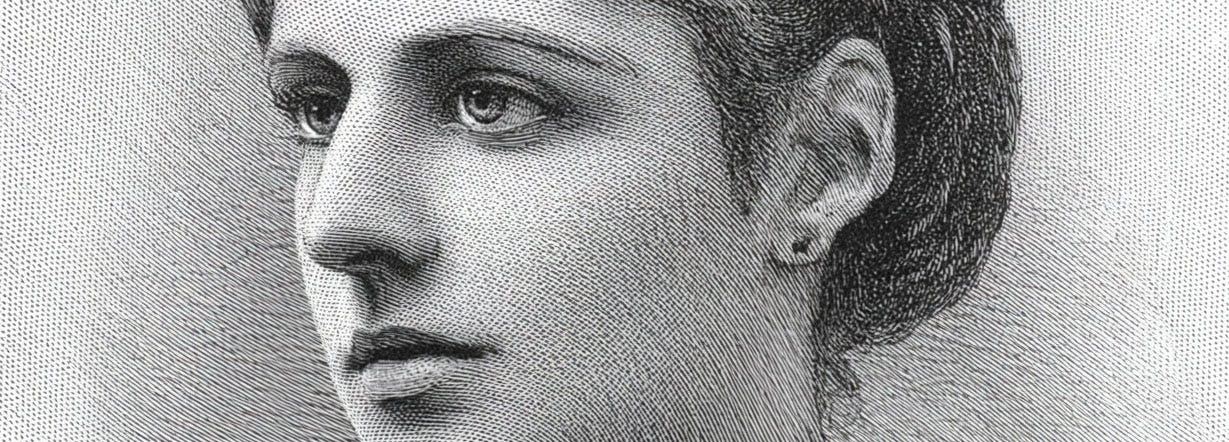Emma Lazarus Reflects Today
The voice behind “Give me your tired, your poor” speaks across centuries about hope, humanity, and the enduring reach of a universal promise.
My name was Emma. You may remember me by a few lines of a sonnet, etched in bronze beneath a statue’s feet in the New York Harbor.
If I may speak now, with the impossible clarity of one who has crossed beyond time, allow me to reflect.
When I was alive, I wrote a sonnet for an art auction. I did this not for fame or politics, but to lend my voice to the aid of those who arrived upon the shores with empty pockets and desperate hope. The year was 1883. Immigrants were not welcomed with open arms, not truly. They were mistrusted. Feared. Judged. And I, a Jewish woman, knew what it was to live with the awareness that one could be dehumanized.
I wrote “The New Colossus” as a summons to what might be. A vision. A promise. Not a record of our kindness, but a lighthouse by which we might steer. I lifted my lamp with trembling hands and said: let us become.
I did not live to see those words inscribed in bronze within the pedestal of the Statue of Liberty. That honor came in 1903, after I had gone. But I have watched, from somewhere outside your time, as those words echoed through generations and across borders and hemispheres. They touched the hearts of millions of people everywhere.
I beg, let my words do this again.
I have watched the long lines of weary travelers, the ships rocking in the harbor, the mothers calming their hungry children with lullabies when there was nothing left to feed them. I have seen the teeming decks, the storm-tossed journeys, the silent prayers, the whispered names.
I have seen those children grow, building homes, raising families, picking fruit in orchards, hammering steel into bridges, scrubbing hospital floors. I have seen them learning languages with thick accents and broken grammar, writing letters home in the fading ink of their native tongues. I have seen them becoming part of the places they arrived, even when those places refused to admit it.
And I have seen incredible brilliance, not just endurance or labor, but minds that lit the darkness. Nikola Tesla arrived in America in 1884, just one year after I wrote the sonnet, with four cents in his pocket, a bundle of sketches, and lightning in his belly. His vision of alternating current did not just power homes. It illuminated cities, carried voices across oceans, and connected the world by electric thread. One immigrant, an unshakable dream, and the world was never the same.
I have also seen hatred rise: hatred that changes its name but not its nature. It wears many faces and targets many people, but it always begins the same way: with fear of the other, the unfamiliar, the one who seems different. I have seen it dressed as nationalism, as purity, as righteousness. But beneath every disguise is the same refusal to recognize ourselves in one another. All hatred is one hatred, rehearsed through time, retold in new tongues.
I have seen the promise falter, and the lamp flicker. I have watched as the question moved from ‘How do we welcome?’ to ‘How do we exclude?’ I have heard the arguments about borders, and safety, and economy. I understand them. But I also understand what it means to lose everything, to risk everything for hope, to arrive with trembling knees and aching hunger, only to be told:
You are not wanted. You are not worthy. You are not welcome.
And still, they come.
If I were to write that sonnet today, would it be the same? Perhaps not.
Perhaps I would write something like this:
Give me not just your tired, but your terrified,
Your families torn apart in the dead of night,
The dreamers walking tightropes of law and love.
Send me the builders of homes and bridges,
The hands that gathered harvests and healed wounds,
The minds that sparked revolutions of light and language.
Not because they are perfect, but because they are human.
Let them find, not locked gates and razor wire,
But hearts brave enough to remember their own journey.
I lift my lamp still, though the winds howl,
Beside a door that must not close.
But if I am honest, I know I wouldn’t. The message doesn’t lack truth, but I so fully desired to shine a light on the seed of our tremendous potential. I believed in illuminating a horizon, not mourning its absence.
So I offer you my old words once again:
Give me your tired, your poor,
Your huddled masses yearning to breathe free,
The wretched refuse of your teeming shore.
Send these, the homeless, tempest-tost to me,
I lift my lamp beside the golden door!
Let the forgotten promise not become broken beyond repair, but restored and made universal. Let us not shrink in fear beneath the shadow of our own unmet potential. May the stains of hatred and fear be washed away by gentler waters of decency.
Some wonder who we are becoming. I ask instead:
How do you hope to be remembered?
We belong to this human family. We are called to compassion, bound by love. How well we care for one another, and for that with which we’ve been entrusted.
This is how we will be remembered.







Beautiful